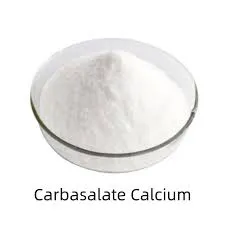- Afrikaans
- Albanian
- Amharic
- Arabic
- Armenian
- Azerbaijani
- Basque
- Belarusian
- Bengali
- Bosnian
- Bulgarian
- Catalan
- Cebuano
- Corsican
- Croatian
- Czech
- Danish
- Dutch
- English
- Esperanto
- Estonian
- Finnish
- French
- Frisian
- Galician
- Georgian
- German
- Greek
- Gujarati
- Haitian Creole
- hausa
- hawaiian
- Hebrew
- Hindi
- Miao
- Hungarian
- Icelandic
- igbo
- Indonesian
- irish
- Italian
- Japanese
- Javanese
- Kannada
- kazakh
- Khmer
- Rwandese
- Korean
- Kurdish
- Kyrgyz
- Lao
- Latin
- Latvian
- Lithuanian
- Luxembourgish
- Macedonian
- Malgashi
- Malay
- Malayalam
- Maltese
- Maori
- Marathi
- Mongolian
- Myanmar
- Nepali
- Norwegian
- Norwegian
- Occitan
- Pashto
- Persian
- Polish
- Portuguese
- Punjabi
- Romanian
- Russian
- Samoan
- Scottish Gaelic
- Serbian
- Sesotho
- Shona
- Sindhi
- Sinhala
- Slovak
- Slovenian
- Somali
- Spanish
- Sundanese
- Swahili
- Swedish
- Tagalog
- Tajik
- Tamil
- Tatar
- Telugu
- Thai
- Turkish
- Turkmen
- Ukrainian
- Urdu
- Uighur
- Uzbek
- Vietnamese
- Welsh
- Bantu
- Yiddish
- Yoruba
- Zulu
10 月 . 14, 2024 20:45 Back to list
Exploring the Use of Ivermectin Injection for Canine Health and Treatment Options
The Use of Ivermectin Injection in Dogs Benefits, Risks, and Guidelines
Ivermectin, a broad-spectrum antiparasitic agent, has garnered attention in veterinary medicine, particularly in the treatment and prevention of various parasitic infections in canines. While primarily known for its use in human medicine, its application in veterinary settings, especially for dogs, requires careful consideration regarding dosage, safety, and efficacy. This article explores the benefits, potential risks, and guidelines for the use of ivermectin injection in dogs.
Understanding Ivermectin
Ivermectin is an antiparasitic medication that belongs to the macrocyclic lactone class. It works by interfering with the nervous system and muscle function of parasites, leading to their eventual death. Its efficacy has been established in treating various parasitic infections, including heartworm disease, sarcoptic mange, and certain types of roundworms and hookworms.
In dogs, ivermectin is available in various formulations, including oral tablets, topicals, and injectable solutions. The injection form is typically used when a rapid response is needed or when oral administration is not feasible.
Benefits of Ivermectin Injection
1. Effective Treatment of Parasites Ivermectin is widely recognized for its effectiveness against heartworm, a potentially fatal condition transmitted by mosquitos. Administering ivermectin via injection provides a quicker onset of action compared to oral forms.
2. Rapid Relief from Infestations For dogs suffering from severe infestations, such as sarcoptic mange, the injection can offer immediate relief, leading to a faster recovery than other methods.
3. Versatility in Treatment In addition to heartworm treatment, ivermectin injection can be used for various other parasitic infections, providing a versatile therapeutic option for veterinarians.
4. Reduced Risk of Incorrect Dosage Injectable ivermectin minimizes the possibility of incorrect dosing that can occur with oral forms, particularly with dogs that may spit out or refuse medications.
Risks and Considerations
Despite its benefits, the use of ivermectin injection in dogs is not without risks. One of the primary concerns is the potential for toxicity, especially in certain breeds. Collies, Shetland sheepdogs, and other herding breeds may carry a genetic mutation that makes them sensitive to ivermectin. These dogs can experience severe neurological side effects if given standard doses of the drug.
ivermectin injection use in dogs

1. Overdosage Risks Administering ivermectin injection at higher doses than recommended can lead to serious side effects, such as seizures, ataxia, and even death. It’s crucial for pet owners and veterinarians to adhere strictly to the appropriate dosage guidelines.
2. Adverse Reactions While adverse reactions are rare, some dogs may develop an allergic response or experience side effects like vomiting, diarrhea, or lethargy after injection. Monitoring is essential following administration.
3. Pregnancy and Young Animals The safety of ivermectin use in pregnant dogs and young puppies is not well established; therefore, veterinarians often recommend caution or avoid using it in these populations.
Guidelines for Safe Use
To maximize the benefits of ivermectin injection while minimizing risks, it’s essential to follow specific guidelines
1. Veterinary Consultation Always consult with a veterinarian before administering ivermectin to ensure that it is appropriate for your dog’s specific health needs and breed.
2. Proper Dosing Follow the veterinarian’s recommended dosage carefully, taking into account the dog’s weight, age, health status, and breed.
3. Monitor After Administration Observe your dog for any signs of adverse reactions or side effects following the injection, and report any concerns to your veterinarian immediately.
4. Regular Preventative Care Utilizing ivermectin as part of a comprehensive preventative care plan, including regular check-ups, vaccinations, and a proper flea and tick control regimen, can help maintain your dog’s overall health.
Conclusion
Ivermectin injection can be a valuable tool in treating various parasitic infections in dogs when used appropriately. Understanding the benefits and risks associated with its use is crucial for pet owners and veterinarians alike. By adhering to established guidelines and ensuring veterinary oversight, the safe and effective use of ivermectin can contribute to the health and well-being of our canine companions.
-
The Power of Radix Isatidis Extract for Your Health and Wellness
NewsOct.29,2024
-
Neomycin Sulfate Soluble Powder: A Versatile Solution for Pet Health
NewsOct.29,2024
-
Lincomycin Hydrochloride Soluble Powder – The Essential Solution
NewsOct.29,2024
-
Garamycin Gentamicin Sulfate for Effective Infection Control
NewsOct.29,2024
-
Doxycycline Hyclate Soluble Powder: Your Antibiotic Needs
NewsOct.29,2024
-
Tilmicosin Premix: The Ultimate Solution for Poultry Health
NewsOct.29,2024













